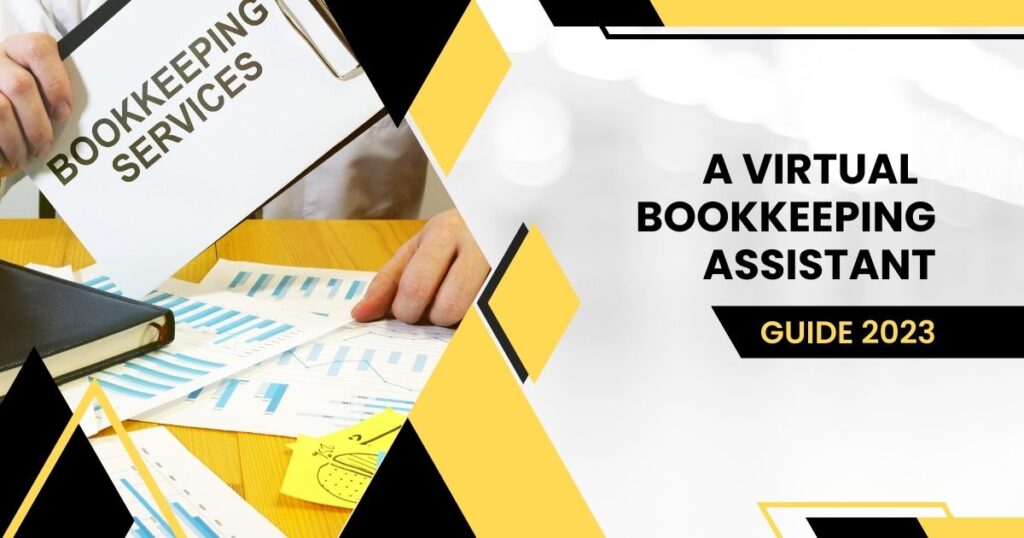Are Financial Hassles Holding You Back? Meet Your Virtual Bookkeeping Assistant!
In need of a Virtual Assistant (VA) for your bookkeeping business? FinePoints has got you covered with their informative video. Learn about tasks a VA can handle, when to hire, where to find, benefits, cost, and communication tips. A must-watch for bookkeepers!
9 step-by-step guide

In today’s fast-paced business world, finding efficient ways to manage your bookkeeping tasks is crucial for business success. Many business owners are now turning to the expertise of Virtual Bookkeeping Assistant to handle their financial tasks remotely. In this article, we will explore the benefits of hiring a virtual bookkeeping assistant and provide a step-by-step guide on how to find, select, and onboard the right candidate for your bookkeeping business. Here’s a step-by-step guide on how to go about it:
Before hiring a VA, assess the financial complexity of your business. If managing transactions, invoices, and payroll has become increasingly challenging or if your business is expanding rapidly, it’s likely time to outsource bookkeeping services.
2. Identify the Tasks to Outsource
Identify the bookkeeping tasks you want to delegate. These could include managing financial records, assisting with tax preparation, keeping up with the latest financial developments, or handling basic accounting services such as invoicing or approving expense reports.
3. Look for the Right Qualifications and Experience
Look for a VA with a strong understanding of relevant accounting software, such as QuickBooks or Xero. Prioritize candidates with experiences similar to the tasks your business requires. Certifications such as Chartered Accountant (CA) or Certified Public Accountant (CPA) can also provide an extra layer of assurance regarding their expertise.
4. Consider Trustworthiness and Tech Savviness
Trustworthiness is crucial when handling cash and financial data. Look for professional bookkeepers with a stellar track record or positive reviews by industry peers. Also, hire someone who’s up to date with the field’s technological advances.
5. Decide Where to Hire
You can hire a VA through various platforms and resources. Freelancing websites like Upwork and Fiverr are excellent places to start. There are also outsourcing companies like Delegated and Magic that provide specialized remote teams.
6. Set a Budget
The price you pay for virtual bookkeeping services can vary depending on the VA’s location, experience, and tasks. Consider the quality of work you’ll be getting when budgeting. Choosing the cheapest option might seem like a good idea initially, but it could lead to expensive mistakes and problems later on.
7. Conduct Interviews and Tests
After posting your expectations about a virtual bookkeeper, ensure they have the required knowledge to provide quality virtual accounting services. You can quiz them about your firm, and even test them with a sample project to get a clear idea about their potential.
8. Onboard Your VA
Once you’ve selected your VA, focus on the specific tasks you’d like to delegate to them and create an onboarding document that explains exactly what you need. If you use cloud accounting software, it won’t be difficult to get your VA up and running.
9. Manage Your VA
With several cloud-based software available today, managing a VA is straightforward. For productivity management, tools like Time Doctor can help track time and boost team productivity. For communication, tools like Slack or Fleep can make collaboration easy.
Remember, hiring a VA is not about replacing human interaction but enhancing it. A virtual bookkeeper can go beyond simple delegation and enhance your bookkeeping with their specific accounting skills .
Looking to hire a Virtual Assistant for your bookkeeping business? In a article, you’ll find all the information you need. It covers the various tasks a VA can perform for a bookkeeper, such as marketing, office tasks, and bookkeeping tasks. It also addresses questions that bookkeepers and business owners may have, including when to hire an assistant, where to find a good VA, and the benefits of hiring one.

When to Hire a Virtual Assistant
Feeling overwhelmed and having the ability to support another person are two key factors in determining when to hire a virtual assistant for your bookkeeping business. If you find yourself struggling to keep up with the demands of your business and feel like you’re constantly juggling tasks, it may be time to consider bringing on some help. Additionally, it’s important to have the financial resources to support another person on your team. Hiring a virtual assistant can relieve some of the pressure and allow you to focus on more important, higher-level tasks.

Benefits of Hiring a Virtual Assistant
There are several benefits to hiring a virtual assistant for your bookkeeping business. One of the main advantages is flexibility. Virtual assistants can work from anywhere, and you can set their schedule to fit your needs. This flexibility allows you to have support when you need it, without the added costs and complications of having a full-time, in-house employee.
Another benefit is the ability to focus on higher-level tasks. As a business owner, your time is valuable, and there are certain tasks that only you can handle. By delegating repetitive or time-consuming tasks to a virtual assistant, you free up your time to focus on more strategic aspects of your business. This can lead to increased productivity and growth.
Creating a Job Description for Virtual Bookkeeping Assistant
Before you begin the process of hiring a virtual assistant, it’s important to have a clear job description. This will help you attract the right candidates and ensure that both parties are on the same page regarding expectations. Be specific about the tasks and responsibilities the virtual assistant will be responsible for. Include any necessary qualifications or skills needed for the position.
When creating a job description, it’s important to prioritize skills over price. While cost is a consideration, it shouldn’t be the sole deciding factor. Look for someone who has the necessary experience and expertise to handle the tasks you need assistance with. Hiring someone solely based on price may end up costing you more in the long run if they are not able to effectively support your business.
Where to Find a Virtual Assistant
There are several avenues you can explore when looking to hire a virtual assistant for your bookkeeping business. Start by tapping into your existing network. Reach out to colleagues, friends, and family to see if they have any recommendations or know someone who may be a good fit for your business.
Another option is to utilize dedicated websites that connect virtual assistants with clients. Websites like Upwork and Freelancer allow you to post job listings and browse through profiles of potential candidates. These websites often have review systems and ratings that can help you make an informed decision.
Additionally, consider posting job listings on platforms like LinkedIn or Craigslist. These websites have a wide reach and can attract a diverse pool of candidates. Be sure to thoroughly vet any applicants and conduct interviews to ensure they have the necessary skills and qualifications.
The Hiring Process
The hiring process for a virtual assistant should involve several steps to ensure you find the right fit for your bookkeeping business. Start by conducting interviews either through video calls or phone calls. This will give you the opportunity to ask specific questions and get a better understanding of the candidate’s experience and abilities.
After the initial interviews, it’s important to check references. Reach out to previous clients or employers to get a better understanding of the candidate’s work ethic, reliability, and professionalism. This step can help you validate the information provided by the candidate and give you peace of mind in your hiring decision.
Once you’ve narrowed down your options to a few candidates, consider doing a trial run. This can involve assigning a small project or task to each candidate to see how they perform and whether they meet your expectations. This trial period allows you to assess their skills, communication, and ability to complete tasks in a timely manner.

Cost of Hiring a Virtual Assistant
The cost of hiring a virtual assistant can vary depending on factors such as experience, specialization, and location. On average, virtual assistants can be paid anywhere from $15 to $30 per hour. However, rates may be higher for virtual assistants with specialized skills, such as knowledge of specific accounting software or advanced marketing expertise.
It’s important to consider the value that a virtual assistant can bring to your business rather than solely focusing on the cost. By offloading time-consuming tasks to a virtual assistant, you can free up your time to focus on revenue-generating activities and growing your bookkeeping business.

Tasks a Virtual Assistant Can Perform
A virtual assistant can perform a wide range of tasks to support your bookkeeping business. One of the key areas they can help with is marketing. They can assist with social media management, posting on job websites, updating your website, and managing your online presence. They can also handle general assistant tasks such as answering emails, taking phone calls, and managing your appointment calendar. Additionally, virtual assistants can assist with bookkeeping tasks such as scanning and coding receipts, organizing financial records, and generating reports for clients.
Communicating with a Virtual Assistant
Effective communication is essential when working with a virtual assistant. Establish scheduled check-ins to discuss ongoing projects, answer questions, and provide feedback. This will help ensure that everyone is on the same page and that tasks are being completed as expected.
Consider utilizing task management tools like Asana to assign and track tasks. These tools allow you to create to-do lists, set deadlines, and monitor progress. This can help keep both you and your virtual assistant organized and accountable.
In addition, using time tracking tools like Toggl can help you monitor how much time your virtual assistant is spending on different tasks. This can be useful for tracking the amount of time spent on different projects and ensuring accurate billing.

Conclusion
Hiring a virtual assistant for your bookkeeping business can be a game-changer. It allows you to offload time-consuming tasks, focus on higher-level activities, and ultimately grow your business. By following a comprehensive hiring process, clearly defining job expectations, and utilizing effective communication tools, you can find a capable and reliable virtual assistant who will support your business’s success.



